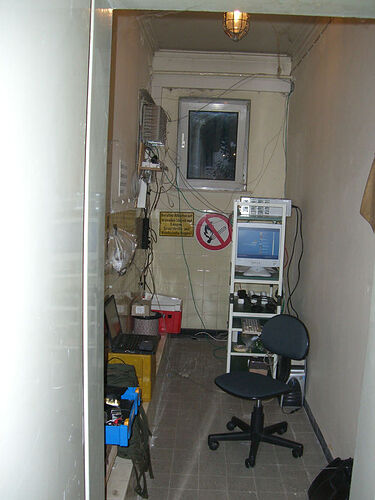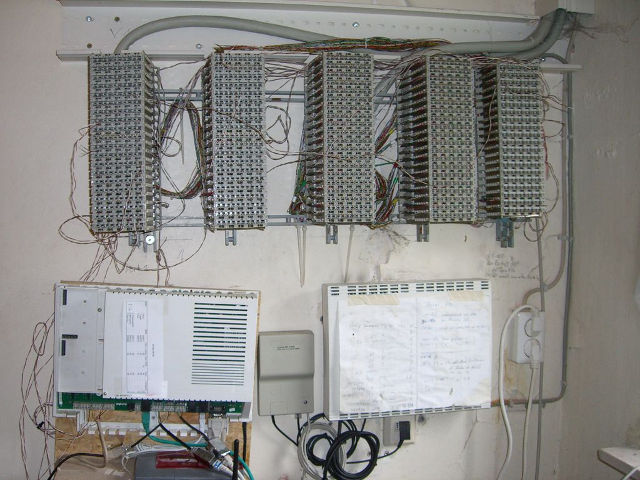Space and Culture
Revisiting the Collective Self
The presentation of the room plans has opened the discussion up nicely. Bravo.
I suspect that my brother the architect would agree that Space precipitates vision…
It is an amusing paradox that we are busily creating a New Tradition.
With traditional traditions, the answer as to the why we do something, is because people have always done it this way. With the unMonastery Primo, we don’t have this luxury of history. In fact, we have the opposite luxury, we are free to find the deepest human needs and design a manner that nourishes their expression unencumbered by tradition.
I have a lot to say; as a theatre person we do not always deal with reality - sometimes you begin in the fiction in order to locate the most playable truths. To do this, we often take apposing truths that then collide to distill fresh vision. This is to say, that in order to build the best finale we first create strategic, illuminating conflicts. And let the voices battle out the best ending…
A major attraction to the unMonastery idea has been the incredible cultural richness latent in the imagery of the traditional monastery. In my thinking, monks and nuns live a completely different holy life than that which I meet everyday. They choose their compromises and adopt a unique culture of a disciplined, radical life-style.
As first time unMonasterians we must build the ritual culture of our discipline:
1) Do we get up each morning at 0430 to do collective prayers and exercises?
— these being visible to the town as we become known for our adapted vocal qi gong training at selected stations around the Sassi which also serve to learn key nourishing Italian phrases.
-
On which selected days of the year do we drink wine? I have suggested we live in two week cycles that each culminate in open theme feasts which connect our work with other social initiatives.
-
When are we silent, in seclusion, fasting? When do we perform community service, treat the infirm? How many hours of the day do we really need infinite wifi internet access in every room !!? When/where do we sing together?
Assembling the elements this culture will become the primary job of unMo1.
My thinking is that one cannot make this transition with the psychology of a tourist.
If ER invites people tp evolve the new future, unMo becomes the laboratory where we live this new future.
Entering a monastery has ‘traditionally’ been a choice for life. Therefore, I have been reluctant to accept the reality of a four month project. This temporary commitment may reflect our unEconomy, but not the proportion of the grand idea. If the unMo Primo is really to be the flagship of the ER idea, it should complete a full cycle: descend, flounder, renew its mission, prosper, be handed over to the local community as a viable organ. I am repeating myself, but it is hard to see this as less than three years.
If we really believe that we can be effective in short transplanted residencies; then it is even more imperative to apply solid social pedagogics when entering unMonastic life. The transition time must be compressed to an almost immediate initiation period - the traditional disciplines be in place upon upstart; we have little place for novices. As one whose professional discipline is building ensembles, I see it the first step of adjustment involves grounding. It is also likely that steps 2, 3, 4 and 5 will also involve grounding; the modern psychic nomads of Digitalia have a deep need to feel belonging. The strength of the Materian here and now may be the architecture; it demands that we enter into dialog with the walls.
And so, I come to the space…
To join this traditional community is not an easy commitment. To dedicate ourselves to collective acts of goodness, we may change our names and surrender all our previous life. In my case, I must look for a way to pack down my life, rent out my home to a visiting professor to minimise costs, and reroute all my projects around the unMo’s frustratingly flexible timeframe that keeps sliding out into the future.
To attract participants into a life of poverty (from perhaps their life of near poverty) the unMo should offer something more than an adventure in unpredictable surroundings. We should within one or two generations have developed a reliable recipe for spiritual acceleration …
I am most concerned about focus and contemplation. Ideally, I would put monks in individual cells - I doubt if our mandate involves learning to dig our own caves, but I think we need to find a compromise here. In order to attract participants, and facilitate harmony, the sleeping situation needs to be less traumatising to people like myself; four weeks camping out in a youth hostel would rapidly drain me of all energy. Four months would be murder.
The other uses that we need evolve are our main dancing/ celebration space: It may be that no existing space is big enough and we will be forced outside (by tradition). This might be the same as our singing space… When I was there, I asked someone about the singing tradition in their family. Naively, I thought that cave dwellers would live life with deep resonance and the vocal manifestations of harmony. As I moved around the invisible city, I kept opening my voice to find this response. I found some spots in the cisterns, but was very disappointed by the ultra-dead sound that bounced back in the unMo location. Can this be true, or are there perfect parabolas somewhere?
( We have already chanted together to end our Skype conference calls. – not my suggestion. Here’s a link to the singing shepherds of Sardinia: Tenores di Bitti.http://www.youtube.com/watch?v=mMddrMMqm00)
Of course, this was the quick tour, but the question must be answered - where do we sing together /how to locate the centre of power in the meeting space ?
– one solution might be to call in the theatre people and ask Andrea Santantonio and Nadia Casamassima to do some actor’s research.
This is a lot from me – looking forward to dialog…
— Bembo


